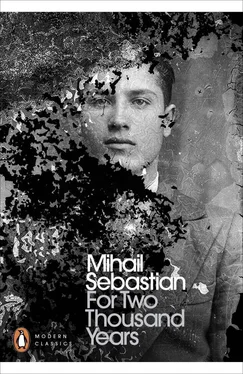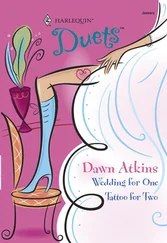We strolled through the gaming rooms and through the park, very happy to be seeing one another again. S.T.H. knows about the work going on at Uioara and seems well informed.
‘Very interesting, everything Vieru’s attempted there. You’re working for us. You’re making this entire region proletarian. In fact, you’re doing something even more serious: you’re dissolving the antagonism between the peasants and the proletariat. Another superstition that’s disappearing. No sir, you can’t have rural reaction in the middle of fighting for the revolution. I don’t recognize the peasantry. I recognize workers and property owners. What work they do and what they own makes no difference. In the factory or in the field, the problem of class remains the same.’
I didn’t attempt a reply, but smiled at finding him, despite the years, just as attached to his Marxist rhetoric. I commented, lightly, that things weren’t that simple, that if he were in Uioara he’d see that the process was deeper and more complex, that I didn’t believe the antagonism between workers and peasants was a superstition and that in any case, we were a long way from having dissolved it, so he had nothing to congratulate us for. I would like to have talked to him about ‘the plum-tree issue’, which I had so often been forced to reflect on since settling in Uioara, but that certainly would have infuriated him and I wasn’t in the mood for an argument. I was very much enjoying strolling with him and I didn’t want to spoil my enjoyment. We moved on to other subjects — books, women — and I was happy to see how sensitive and open the fellow was when you get him off Marxism and dialectics. I asked him to visit me some day at the oilfield, and he said he wasn’t sure he could, as he wasn’t alone in Sinaia. This probably meant a woman, but I didn’t ask for details. Judging from his reluctance to speak, it was probably an affair of the heart. But he clearly felt the need to explain himself, as he burst out, with a certain weariness in his voice:
‘Books, love affairs, money, they’re all substitutes. I’d be bored without them. I’m waiting for something else entirely … But the right moment is yet to come. We’re in a stupid year, a year of prosperity. I’m waiting for the crisis. That’s when everything will fall, be overturned. There’s too much money around now, too much excess, too much optimism. We’ll see what happens in 1930, in 1931. Things will come to a head one way or another. Until then, I’m going to rest. I’m neither sentimental nor a martyr. I’m not going to get sent to Jilava Prison for poetry. The moment that counts is the moment of spasm. Six years ago, when we met, was one of those, but it passed and I missed it. It’ll be back some day, and I won’t miss it again.’
Evening fell. The sun bathed the big windows of the casino with a violent glow. It was clear we were both thinking of the same thing, the meaning of that red blaze, as we suddenly looked up at one another.
‘I think you’re wrong. And if you’re not wrong, that’s even worse.’
The park was full of beautiful women, full of white dresses. We parted as friends.
General ideas are S.T.H.’s vocation. I lost the habit for them long ago. When was the last time I had a discussion involving arguments, issues and principles?
One might say I’m becoming coarsened. But life is so simple now, so clear.
I remembered my blue notebook from 1923. Where could it be? At home, perhaps, in some drawer or box. I’m going to look for it someday, though I think it’ll be embarrassing to re-read it. Lord, what folly must be written there … But perhaps not entirely my fault. S.T.H. is right: it was a moment of crisis. I was expecting signs in the street — and there was nothing in the street but confusion, the fog of stupidity, intoxication. So I took refuge in intellectual problems, which cast no light, but gave me consolation. It was a simple game and also gave me a certain illusion of personal superiority. I reduced everything to the drama of being a Jew, which is perhaps a constant reality, but not such an overwhelming one that it should cancel or even supersede strictly personal dramas and comedies. I was, I believe, two steps away from fanaticism. Interrupting my diary was a good thing to have done. Writing only fed my fever. From the day I tossed that notebook aside and let the days pass of their own accord, without commenting, without escapism, things settled down bit by bit and became simpler, calmer.
*
On Thursday, old Ralph returned from abroad and went straight to the oilfield from the train station. It was clear he had an intuition. He made a terrible scene, sowing panic for a kilometre around.
I later heard that at the wells and in the offices everyone was trembling with apprehension. ‘The boss is furious’ went the news, in a chain of whispers. I was lucky that Marin Dronţu was there too, so I was able to keep quiet without my silence appearing insolent. The old fellow wouldn’t stop. What? Whose villa? His own villa? He, the master’s? He, who’s spending a fortune? His own personal villa, just the way he wants it? Just as he ordered it? How could we? On what basis? How dare he? This messing about has to stop! Enough of this nonsense! Enough! Really enough! He’ll take measures! He’ll demolish the lot! Rebuild the lot!
I let him talk, knowing he’d tire — and that’s what happened. For two days he didn’t come around here. I saw him at the wells and he mumbled a reply to my greeting. Next week, when the master comes, there’ll be a burst of indignation, and then it’ll pass.
*
This evening, a reception in honour of old Ralph T. Rice. A gala reception in Uioara, in Prahova! So many dinner jackets and long silk dresses — almost unreal in this place of oil and plum trees. Of all the master has built there, I like the club most. There’s something both solemn and cordial about it. It’s British and local in equal measure. The ballroom and the billiard room are linear and sober; the verandas and reading rooms have the air of small interior gardens. Almost every evening, before dinner, I meet there with Phillip Dunton to play a game of chess.
I’m not going to Rice’s reception. I’m still en froid after Thursday’s scene, and then I don’t have the required dinner jacket. I’m happy to stay at the cabin and listen to records borrowed from Marjorie. I’d have liked to convince Dronţu not to go either, but there was no way.
‘What? Me, afraid of an American, three Germans and five Englishwomen? You tell me I’ve no dinner jacket? Don’t you worry, sir, I know all about being elegant.’
He powdered and perfumed himself and very carefully constructed a triumphant look: a bright blue suit, a coffee-coloured pullover, a stiff collar, a polka-dot bow-tie and white spats. For a moment I wondered if Marin was not a comedian, engaged in gratuitous outrages against convention. Seen this way, his entry in the club would be a master-stroke.
Dear fellow! He left happy, twirling his gnarled walking stick, and I envied him his iron constitution, his absolute imperviousness.
*
I worked flat out all day. The master is coming the day after tomorrow and I want everything to be in order. Marin Dronţu arrived very late at the oilfield, tired after a sleepless night and, on arriving, told me there was something he wanted to talk to me about.
‘At lunch, Marin! I’ve no time now.’
But I stayed and ate lunch at the site, quickly, as I’d convinced everybody to take a break of only half an hour, and Marin was unable to talk to me. I knew it had to be very serious, judging by his worried air. Whatever job he had at hand, I found him always at my side, fretting over some secret he wished to unburden himself of.
Читать дальше












